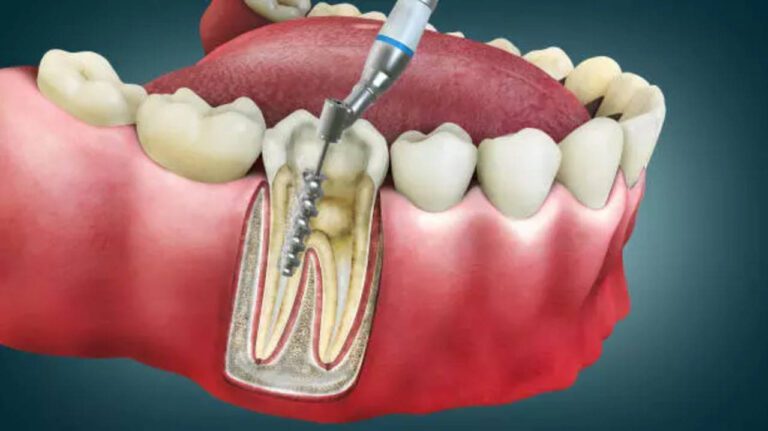The child was reportedly given anesthesia before the procedure
New Delhi: A 4-year-old boy who underwent root canal surgery at a private hospital in Kerala died after his relatives accused the doctors of medical negligence. A police complaint has also been filed against the doctor.
According to news reports, the incident took place in Kunnamkulam where the child was allegedly given anesthesia before the procedure. However, once he regained consciousness, the child reportedly experienced severe discomfort, accompanied by a significant drop in blood pressure, which eventually led to his tragic death.
Police said they are investigating the case, treating it as an unnatural death.
Root channel
Root canal treatment is done to save tooth decay when bacteria enter the pulp of a tooth and cause an infection. During this procedure, the infected pulp is removed and the tooth is sealed to prevent reinfection.
It can also happen if your tooth is cracked or damaged due to trauma.
Symptoms that indicate you need a root canal
According to dentists, most of the time people don’t know if they have an infected tooth until it starts to hurt. However, there are some signs and symptoms to be aware of:
Toothache
Dental diseases cause tooth pain that continues to increase if you do not get proper treatment. The discomfort can also reach your jaw, face or other teeth.
Sensitivity to hot and cold
If you feel a funny sensation when you drink hot coffee or eat ice cream, it may mean that you need root canal treatment.
Swollen gums
When you have a tooth infection, pus collects in the area, causing swelling and inflammation along with the gums
Pimple on the gums
Doctors say you may develop a pimple or boil on the gums as pus from the infected tooth drains from the pimple
Swelling in the jaw
The pus in the gums also continuously builds up, causing swelling in the jaw.
Discoloration of teeth
When a tooth’s pulp becomes infected, it can make your tooth appear darker. This happens due to poor blood supply to the tooth.
Loose tooth
An infected tooth may feel more loose. This is because pus from the infected pulp can soften the bone that supports the tooth.
The process
According to dentists, a root canal starts with a dental x-ray of the affected tooth, which helps to know to a great extent the extent of damage caused to the tooth. It also ensures if a root canal is required. Some steps that will be completed during the root canal procedure include:
Administration of local anesthesia
Local anesthesia is given to numb the infected tooth and surrounding gums, helping to relax the painful area.
Dental dam
Before the procedure began, the doctor placed a small rubber dam over the area to keep it dry.
Access hole
A small opening is then made at the top of the tooth to access the pulp. The infected nerves, blood vessels and tissues inside the tooth are then removed
Placement of the final restoration
A dental crown is placed to protect the healed tooth and restore your bite. Crowns are made to order and usually take two to three weeks to make. When your crown is ready, the temporary filling is removed and the permanent crown is placed.
Is a root canal safe?
Although doctors say root canals are safe and effective, the procedure boasts an impressive success rate of up to 98%. However, some complications occur in some cases, which is true if your tooth is too damaged for this type of treatment. Symptoms of a failed root canal include:
- Pain
- Swollen gums
- Pus or drainage
- Tooth discoloration
- Pimple or boil on the gums
- Trick problems
- What is root canal surgery?
A root canal is a dental procedure that relieves pain caused by an infected tooth. During the procedure, the inflamed pulp is removed and the internal surfaces are cleaned and disinfected.
Root canal treatment is necessary if you experience discomfort deep within your tooth. Your jaw, face or other teeth could also feel discomfort.
Avoid alcohol and tobacco for a full 24 hours before the procedure, eat before the procedure and take a pain reliever before the procedure
Common signs of tooth decay include toothache, pain or pain that comes on for no apparent reason, tooth sensitivity, mild to sharp pain when eating or drinking


